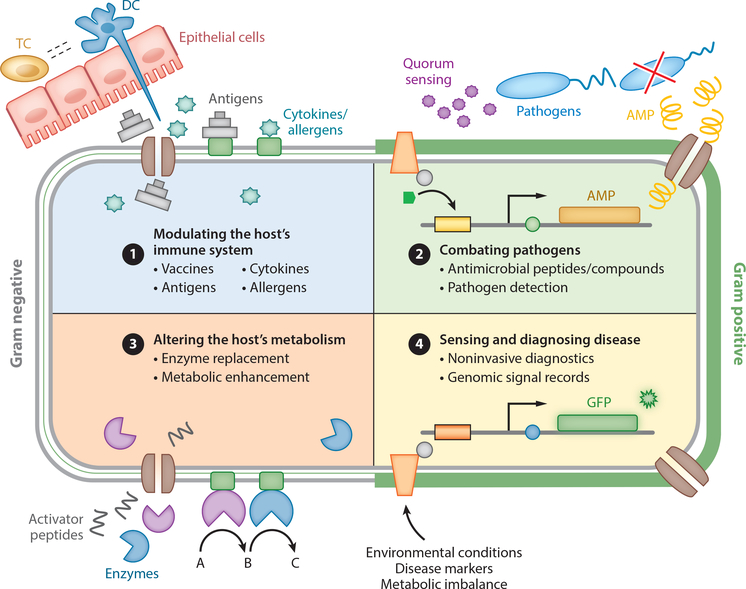Figure 3.
Opportunities to engineer host-associated microbes. Both gram-positive and gram-negative members of the human microbiota can be engineered into biotic therapeutics for applications such as modulating the host immune system, combating pathogens, altering the host’s metabolism, and sensing and diagnosing disease. ① Gut-associated microbes interact extensively with the mucosal immune system and can be used to deliver vaccines, antigens, cytokines, and allergens. ② Probiotics or members of the microbiota can be engineered to produce antimicrobial compounds and peptides effective at combating pathogens. Pathogen-specific quorum sensing can be used to detect infections to actuate antimicrobial response. ③ Host metabolism can be altered through the expression of enzymes and activator peptides. ④ Microbial biosensors capable of detecting environmental conditions (pH, temperature, etc.), disease states (inflammation), or metabolic imbalance can be coupled to the expression of a reporter (fluorescent protein, enzyme) to detect and diagnose disease. Abbreviations: AMP, antimicrobial peptide; DC, dendritic cell; GFP, green fluorescent protein; TC, T cell.

